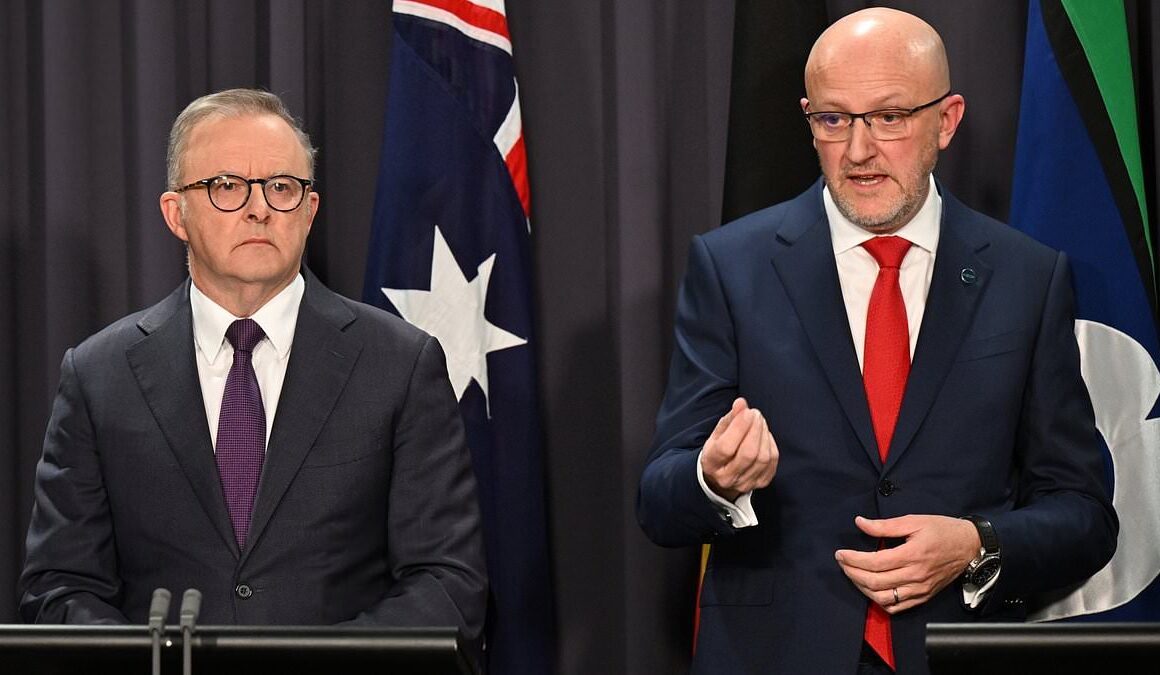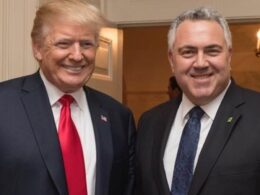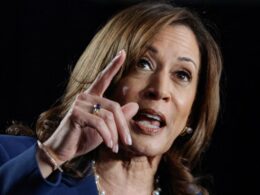Australia’s terrorism threat level has been raised from possible to probable due to an increased risk of politically motivated violence – as the country’s spy chief warns there is a 50 per cent chance of an attack on Australian soil in the next year.
While it has not been raised due to one specific incident, it’s understood there have been eight incidents in Australia investigated by security officials for alleged terrorism or possible terrorist links.
The conflict in the Middle East is also understood to have exacerbated concerns by security agencies about politically motivated violence in Australia, although it is not the direct cause of the threat level rising.
It’s the first time the threat level has been raised since 2014 during the height of threats from terrorist group Islamic State.
Prime Minister Anthony Albanese said the national security committee met on Monday morning to discuss the change.
‘Probable does not mean inevitable and it does not mean there is intelligence about an imminent threat or danger,’ Mr Albanese told reporters in Canberra.
‘But the advice that we’ve received is that more Australians are embracing a more diverse range of extreme ideologies.’

Anthony Albanese says more Australians are embracing a more diverse range of extreme ideologies (pictured alongside ASIO chief Mike Burgess)
‘Governments around the world are concerned about youth radicalisation, online radicalisation and the rise of new mixed ideologies.’
The Prime Minister said that it was ‘our responsibility to be vigilant’ but sought to reassure Australians by reiterating that the same threat level was in place for over eight years before it was lowered in November of 2022.
ASIO director-general Mike Burgess said Australia’s national security environment had become more volatile.
‘There’s a greater than 50 per cent chance of an onshore terrorist attack in the next 12 months,’ he said.
‘Attacks are likely to happen with little or no warning and will be difficult to detect.’
He said said more Australians were embracing more extreme ideologies and using violence to achieve their cause.
‘Politically motivated violence now joins espionage and foreign interference as our principal security concerns,’ he said.
‘Unfortunately, here and overseas, we are seeing spikes in political polarisation and intolerance and civil debate and un-peaceful protests.’
Mr Burgess said anti-authority beliefs were also growing along with a decline in trust in democratic institutions.
‘This trend increased during COVID, gained further momentum after the terrorist attacks in Israel and accelerated during Israel’s military response,’ he said.
‘The (Middle East) conflict has fuelled grievances, promoted protest, exacerbated division, undermined social cohesion and elevated intolerance.’
There were also concerns of multiple extremist beliefs being combined to create hybrid ideologies.

ASIO director-general Mike Burgess said more Australians were embracing more extreme ideologies and using violence to achieve their cause
The director-general said lone actors were the most likely style of terror attack, often using rudimentary weapons in a crowded or public place.
Mr Burgess also noted that a large number of young people were being radicalised.
‘Extremist ideologies, conspiracies, misinformation are flourishing in the online ecosystem and young Australians are particularly vulnerable,’ he said.
Mr Burgess said that the situation in Gaza was a ‘significant driver’ of the terror alert increase but not the sole cause.
‘It’s driven more emotion and heat into society,’ Mr Burgess said.
He added: ‘There’s plenty of anti-Semitism but there’s plenty of Islamophobia at the same time. It’s almost equal treatment, not quite, but almost equal treatment.’
Mr Burgess said ASIO and his law enforcement colleagues were ‘reviewing our caseload of assessed violent extremists’.
‘Many of those we assess do have awful ideologies, but are unlikely to go to violence in this environment, it’s important that we retest those assessments we’ve made to make sure we’re paying attention to the people we know about,’ he said.
‘Of course, it’s the people I don’t know about that I worry the most.’









